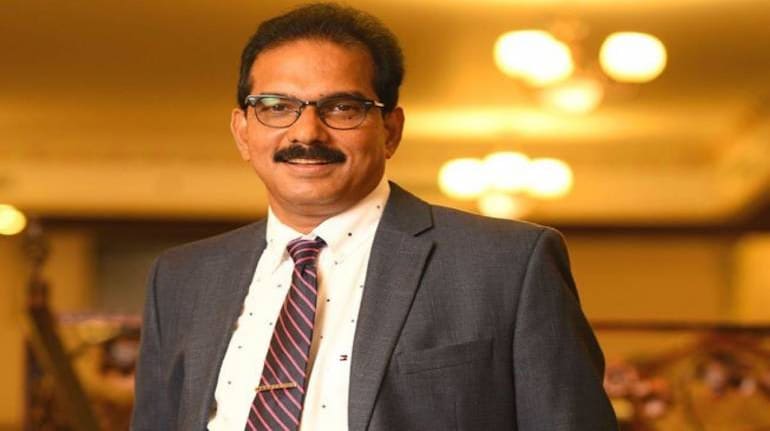Articles

New dispensations in Israel and Iran amid ongoing rivalry
July 8, 2021
Kitex saga: As Telangana gains, how much does Kerala stand to lose?
July 12, 2021Kitex controversy is a sign Kerala is yet to shake off its anti-industry image

The apathy towards business and investments in Kerala is once again in the limelight with the recent remarks by Sabu M Jacob, Chairman of Kitex Garments. Kitex is a leading garments manufacturer with a significant export market share in the United States, the European Union and other countries. The complaint raised by Kitex is that frequent inspections and raids by the officials from the state departments have disrupted the company’s functioning and Jacob is on record that he has second thoughts of investing Rs 3,500 crore in Kerala.
The tussle raises concerns about Kerala’s investment-friendly atmosphere. What adds layers to this controversy is that Jacob nurtures political interests, and towards that end formed the Twenty20 in 2015. As recently as in the December local body elections the Twenty20 contested against the political behemoths like the Congress and the Left parties to win four grama panchayats in the neighbourhood where Kitex’s headquarters at Kizhakambalam in Ernakulam is located.
While Jacob’s allegations of a witch-hunt and harassment may have some truth to it, there are also political factors at play that potentially conceal the true picture of Kerala’s investment climate.
Kerala has been struggling with its anti-business tag for many decades now. Though the state was one of the early movers to attract private investments in post-Independent India, labour union strikes and disregard of the state governments ruined the confidence and trust of private investors. Over the years, this eroded the perception and narrative about the ease of doing business in Kerala.
The Credit-Deposit Ratio, which shows the willingness of banks and institutions to lend and acquire stake in businesses operating in the state, gives useful insight into the economy and the society at large. As per the RBI report of 2020-21, Kerala recorded a low credit-deposit ratio among all the states. The graph has been moving downwards since 2014 where the figures have steadily fallen from 79 in 2014 to 61.51 in 2020-21, indicating that there is an air of scepticism among banking institutions towards lending to businesses in Kerala. This presents many questions on the condition of the state’s economy, one being the nature of the state’s economic activity.
Over the last five years, there has been an increase in the size of Kerala’s manufacturing sector (in value terms). The share of manufacturing in gross value added (GSVA) increased from 9.8 percent in 2014-15 to 12.5 percent in 2019-20. The growth coincides with the government initiatives such as Entrepreneur Support Scheme (ESS), Capacity Building Programme, Single Window Clearance Mechanism, etc. to improve Kerala’s industrial environment.
This support system, although significant, misses critical elements that affect the MSMEs creditworthiness. Kerala’s manufacturing sector is overwhelmingly dominated by micro-sized firms constituting over 85 percent. The small size of economic activity makes banks wary of lending, owing to its unviability of advancing loans to micro enterprises.
To have a financial system that supports entrepreneurship, there needs to be a favourable regulatory environment that encourages micro and small firms to expand their operations to a large scale. There are still many regulatory and stringent labour laws that continue to incentivise firms to stay small. The narrative by the government has always been about labour welfare and employment security, while forgetting the fact that markets enable the ecosystem for investors.
To be fair, Kerala’s changing business environment can be observed in the workforce participation. Within the organised sector, the private sector employment has been slowly increasing since 2011. It presents a favourable picture of the government starting to recognise private entities as key contributors to development activities.
However, the worrying factor is that employment in the organised sector has remained more or less stagnant, showing only a marginal increase from 1.173 million in 2017 to 1.25 million in 2020. The stagnancy observed in the organised sector is due to labour movement to informal sectors such as construction, real estate, textiles communication, etc., which provides more employment. This again points to the legal, regulatory and policy framework that prevents transition to the formal sector.
The indicators reflect that the investment climate in Kerala has shown steady improvement over the years. However, the reforms have been stealthy and half-hearted. Successive state governments have tried to shake off Kerala’s image and legacy of being a poor place for business by organising global investors’ meets and promoting Kerala’s start-up culture. What they forgot to gauge was if all wings of government and its machinery are on the same page, and whether the state is ready for scaling up its business ambitions.
It is not just a conducive law and order situation that matters, but reduced bureaucracy and interventions in business activity is equally important. For Kerala to perform to its potential, the role of the government should be well-defined as an enlightened regulator and facilitator of investments — and not that of a market participant and competitor. If Kerala continues to be the latter, it will only excite more dramatic displays of outrage, eroding its credibility in the private sector.
(This article is written by CPPR Chairman, Dr D Dhanuraj and Senior Research Associate, Nissy Solomon. It was first published in Moneycontrol.com)
Views expressed by the author are personal and need not reflect or represent the views of Centre for Public Policy Research.
Nissy Solomon is Hon. Trustee (Research & Programs) at CPPR. She has a background in Economics with a master’s degree in Public Policy from the National Law School of India University, Bangalore. After graduation and prior to her venture into the public policy domain, she worked as a Geographic Information Systems (GIS) Analyst with Nokia-Heremaps. Her postgraduate research explored the interface of GIS in Indian healthcare planning. She is broadly interested in Public Policy, Economic Development and Spatial Analysis for policymaking.

